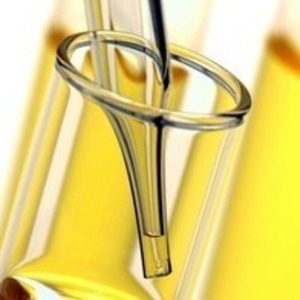AGQM develops no-harm test for biodiesel heating oil stabilizers

October 2, 2015
BY Ron Kotrba
Due to increasing demand for biodiesel-blended heating oil, the German biodiesel quality management association AGQM announced it will offer for the first time a test to assess oxidation stabilizers for fatty acid methyl esters (FAME) intended for blending with heating oil. AGQM says the sophisticated tests are meant to rule out probable harmful effects of the fuel itself as well as undesired interactions with other fuel components.
“In order to assure the quality of fuels and FAME, additives such as flow improvers, metal deactivators, odor-covering agents and stabilizers are used,” explained Andrea Seifert with AGQM. “Due to unwanted interactions, such substances may lead to incomplete combustion, corrosion, increased emissions and the plugging of filters and nozzles. In the interest of a safe use of those additives—from the blending process to their use and combustion in the burner—possible problems must thus be detected beforehand. Suitable test methods, so-called ‘no-harm tests,’ were developed for that purpose.”
As a result of the extensive use of oxidation stabilizers in FAME, AGQM says no-harm testing is indispensable.
Advertisement
Since 2008, AGQM has offered a no-harm test for oxidation stabilizers, developed in cooperation with DGMK, used for biodiesel blended with diesel fuel used in compression-ignition engines. Successfully tested products are published in its publicly available ‘No-harm List,’ which the organization says contributes to improving the quality of biodiesel blends.
The German standard DIN SPEC 51603-6 stipulates the requirements and test methods essential for the safe operation of oil burners with alternative liquid fuels such as FAME. “There are intentions to operate the heating oil equipment and devices currently on the market with alternative liquid fuels, possibly after necessary technical modifications,” Seifert said. “The standard was published as preliminary standard since not all interested clientele considers the current practical experiences concerning a long-term and failure-free operation with those alternative fuels yet adequate and sufficient.”
The new no-harm test describes a test program with which oxidation stabilizers for the FAME component of fuels can be comprehensively tested for unwanted interaction. According to Seifert, the test program includes assessment of compliance with the stipulated minimum requirements; DGMK filtration test 663; interaction test; and determination of the relative efficiency of oxidation stabilizers.
Advertisement
Some of the other differences between the no-harm test for FAME blended in fuels for compression-ignition engines and FAME comingled with heating oil for use in oilheat burners include the use of B20 as a test fuel for the latter, whereas B10 is used for the former. “B20 is a common bio heating oil in the German Market,” Seifert told Biodiesel Magazine. “For the use as engine fuel, a B10 covers the reality of B7 in practice better.” The concentration of additive is limited to 1200 mg/kg in both tests. In addition, AGQM is running tests on total acid number, sulfur content, alkali metal and alkaline earth metal content, because of specific requirements in the DIN SPEC 51603-6. Due to long storage times, high values for these parameters in heating systems can lead to more serious problems than in the fuel sector.
“In contrast to our established no-harm test for fuels, we run the no-harm test for bio heating oil without the expensive XUD9 engine test because of a higher tolerance of heating systems concerning nozzle fouling,” Seifert said. “In our no harm test for FAME for diesel fuel we are using a reference diesel fuel without any additives. We do use the same fuel for our no harm test for FAME in heating oil due to the fact that it is impossible to get a comparable batch of heating oil in each test period.”
AGQM says this new test program was developed in cooperation with the German petroleum industry since the application of biodiesel as a heating oil blend component must be safely handled at all times, and negative interactions with additives is unacceptable. In addition, tests are carried out concerning the relative effectiveness to also be able to adapt the use of additives to the individual application from an economical point to view.
The registration deadline for this test is Oct. 16. For the detailed description of the test and additional information to register, email info@agqm-biodiesel.de.
Related Stories
Avfuel Corp., the leading independent supplier of aviation fuel and services, is expanding its sustainable aviation fuel (SAF) footprint with the addition of a new, strategic supply point in Denver, Colorado—the first of its kind in the region.
ATOBA Energy and Air Moana are partnering to implement scalable solutions for the supply of SAF. The collaboration aims to ensure long-term SAF availability while supporting local initiatives to develop sustainable fuel production in Tahiti.
Kintetsu World Express Inc. has signed an additional agreement with Hong Kong, China-based Cathay Pacific Airways for the use of sustainable aviation fuel (SAF). The agreement expands a three-year partnership between the two companies.
Broco Energy on July 17 announced a new partnership with the Massachusetts Port Authority (Massport) to deliver and transition Massport's fuel tanks to renewable diesel across its various facilities.
Shell Aviation, Accenture, and Amex GBT on July 10 announced Avelia is in the process of evolving to an industry solution with independent data hosting and a multi-supplier model helping users access the GHG benefits of SAF.
Upcoming Events










